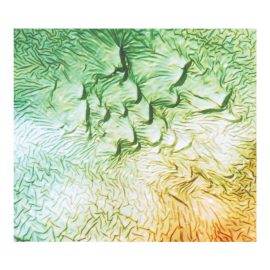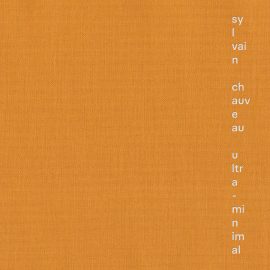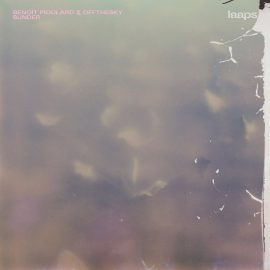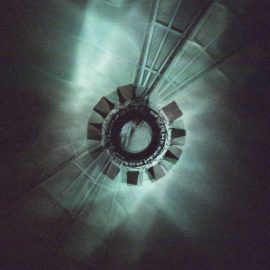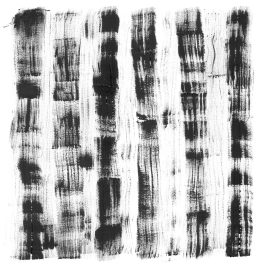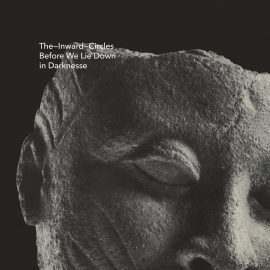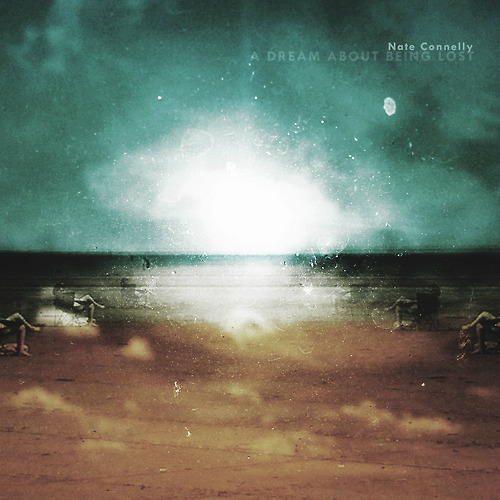 Nate Connelly A Dream About Being Lost Blind Colour Nate Connelly’s debut is a rather smart and sophisticated collection of tracks and songs that skirt the line between leftfield R&B and something more abstract, taking slight cues from Burial and his ilk. It has in common with those ghostly records the sense of disembodied and manipulated vocals and phrases, but it’s balanced out by a distinctly more human vibe on maybe half of these cuts. “Some Faith” is a perfect opener, starting unassumingly enough with some light rhythm and understated bass tempered by some surface noise. The sampled vocals that circle overhead fit the tone of Connelly’s intro quite well. At times Connelly’s combination of wistful songwriting and beatmaking recalls the earnest laptop torch songs of Halls, but the timbre is distinctly different. But there’s some more soul in here, a different kind of groove and sensibility; one only need to hear “Tired Waiting” to get it immediately. Ruby Pemberton’s vocal is sly and seductive, complementing Connelly’s production really sweetly. That there are more complete songs present in the tracklist makes the album flow very differently than it would if they were all just cut-ups. That doesn’t mean that his more sample-laden beatmaking excursions aren’t any less worthwhile; “Would I Be Where I Belong,” “Similar to a Simulated Simulation,” and “I Form a Club” skip and stutter like Mount Kimbie at their finest, but with a gloomy haze that skews it toward a slightly warmer sound. That sense of fragility translates into something even more delicate with Amy Robina’s vocals on “A Dream About Being Lost,” a sort of laptop folk dirge, really evocative stuff. That the two closing tracks are so purely electronic by contrast is a smart move, giving the closing of the album a little more of an edge. It’s an accomplished and dreamy album of tracks that straddle the line between beats and songs, drawing inspiration from different sides of the spectrum and pushing them together in interesting ways.
|
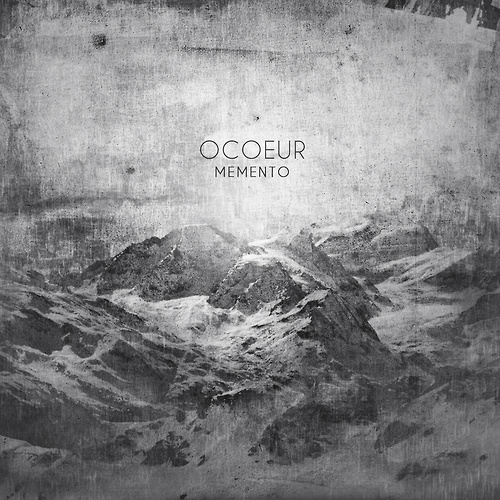 Ocoeur Memento n5MD Franck Zaragoza’s newest EP as Ocoeur (phonetically from “Au cœur” = “to the heart”) shows off his production skills in spades with three completely gorgeous new originals paired with two handsome remixes. Ocoeur’s sound is rich and dynamic, mixing pure electronic sounds with more electro-acoustic sound design and lush, cinematic arrangements. The closest comparison I might draw is some of Jon Hopkins’ most luscious tracks and arrangements, but Zaragoza’s hand is more delicate, less coarse. That much is immediately noticeable in “Fusion,” the gorgeous opening track. It bristles with quiet tension as tremolo drones hold steady under its otherwise tragically beautiful piano and strings. An added layer of manipulated textural noise adds another thin layer of tautness to a strong first showing. The second track, “Memento,” begins with a layer of bubbly noise before it shifts shape into a squirmy, textural pattern of rhythm. This then serves as the backdrop for another beautiful arrangement of delicate sounds, feeling like a lush re-interpretation of all of that crunchy beat-laden IDM circa 1999-2000. Zaragoza’s talent for manipulating what appears to be organic concrete sounds into beats and other patterns is noteworthy, providing a detailed and technical layer of complexity where I often find myself wondering what sounds are “real” or fully synthesized. The remixes of “Light,” the original version of which is on his previous n5MD album, Light as a Feather (2013), stand strongly alongside his new originals. Ben Lukas Boysen (of Hecq) contributes a stunning rework that emphasizes piano (prepared or otherwise manipulated) over all else, with a different sense of drama from the original. Recent n5MD signing Elise Melinand also contributes a handsome rework, drawing inspiration from the spaces between and prolonging them into a haze of drones of strings, electronics, and voice.
|
|
 Echaskech Origin Just Music Echaskech’s sound is lush and large, with a strident pace and full electronic arrangements that would make Apparat proud. Origin works well as a musical narrative in sequence, with crests and valleys in dynamics to match its moody disposition. “Scanners,” “Ash Fallen,” and “Metic” are each big, full of drama, swelling with grace and smoldering with a deep glow. “Paper Scissors,” by contrast, has an almost elegiac quality to it, with warbly melodic leads that recall the light haze of Boards of Canada amidst the crisper rhythm tracks that are more distinctly their own in sound. Some of the tracks have an epic feeling that recalls heavier handed acts like the Glitch Mob, but Echaskech’s sonic palette feels more delicate and harks back more to 2000-era beatmaking. That combination of intricate rhythmic detail and emotive, evocative melodic arrangements feels like a throwback to IDM’s post-Tri Repeatae golden age and a nod toward to emotive genre-mashing that artists like Apparat, Telefon Tel Aviv, and Trentemøller are exploring. There are tinges of that flirtation with post-rock that an act like Tycho has also recently more fully embraced; “Anomie” closes out Origin with a more human touch of guitar over its aspirational arrangement. I find it hard to describe Origin without dropping names and other references, but rest assured that the result is far better and greater than the sum of its parts. From start to finish, it’s excellent. Instead of merely looking back at the grooves of the past, Origin seems to draw inspiration from there just as much as from the present, with an eye on the future.
|
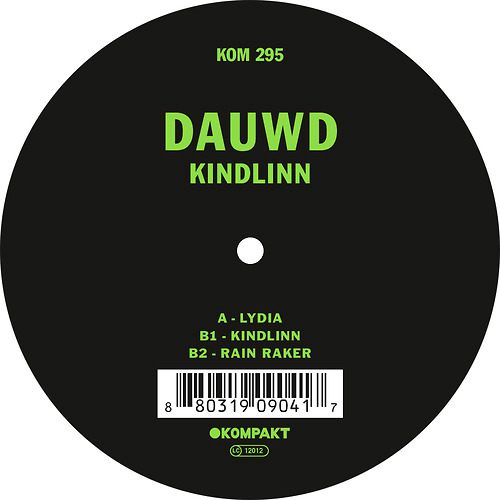 Dauwd Kindlinn Kompakt Dauwd Al Hilali signs to Kompakt [previously on Ghostly International and Pictures Music] with the release of this new three-tracker, and it’s a good match. Kompakt’s output has been less unanimously to my liking compared to their earlier years, but they still put out some really fantastic dance music. Such is the case with Kindlinn — it combines the punchy dancefloor sounds Dauwd showed off on his debut What’s There a few years ago on Pictures Music, but it tempers that against a decidedly slick, melodic edge that feels distinctly Kompakt to my ears and feet. Gone are the tinges of vocal house and 2-step that peppered “What’s There,” streamlined instead and made into something more sleek, more polished, more Kompakt. “Lydia” sets the stage well with a fluttering melodic lead and a patient stride, but the real highlight is the title cut. “Kindlinn” has a nice contrast of smooth, melancholic disco against some rather distorted, raw leads that give it a little added bite. Its percussive piano chord stabs are the icing on a delicious cake, falling in place in perfect contrast to the shrill lead that swarms overhead. “Rain Raker” rounds it out as a gorgeous comedown, all neo-trance in its patterns but without much of a rhythm section, instead primarily pads, undulating arps, and a cascade of effects. This is by far the best record I’ve heard on Kompakt in ages, harking back to the days when practically every track they released was top-notch to my ears. Fans of relatively recent releases from Coma, Kölsch, or John Tejada on the label will likely fall in love with this one as I have.
|
|
©
All words by Matthew Mercer of Ear Influxion
Additional editorial by HC



